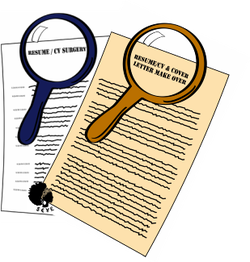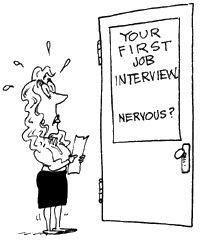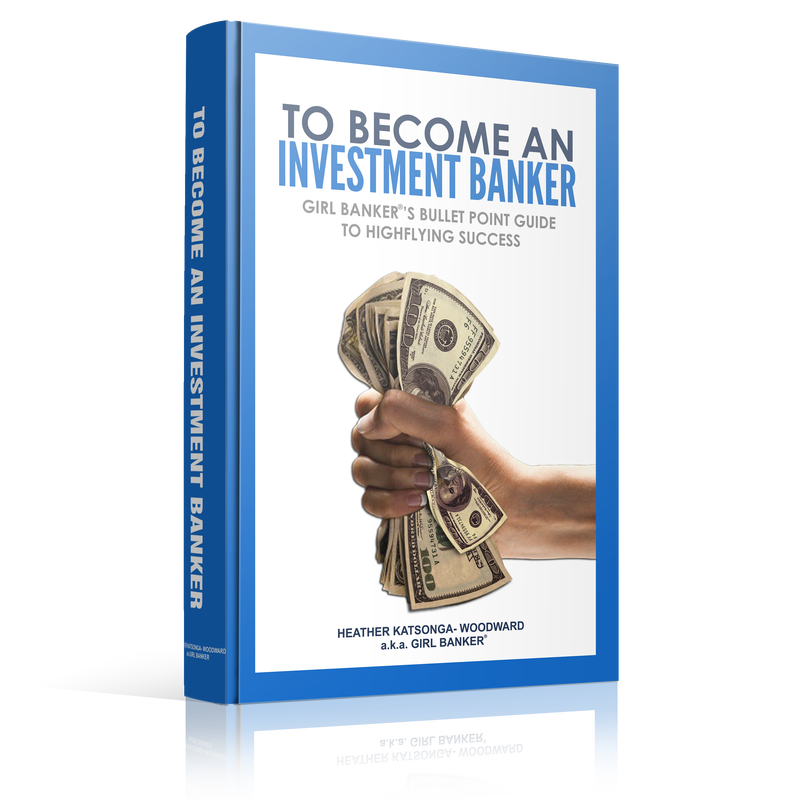 by Girl Banker Listen to the iTunes podcast instead. This is the most comprehensive list of tips for writing a resume or CV on the internet yet! Ensuring that your resume is very well crafted and answers the needs of the recruiter will increase your chances of getting a job interview immeasurably. A good resume/CV is the first step to landing that job you want. Our tips: 1. Don’t write “Curriculum Vitae” or “Resume” at the top This simply isn’t the done thing anymore; it should be pretty obvious what it is. 2. Your name should come at the top This is the current standard. It makes it easier for recruiters to sort out their pile of applications. 3. No silly email addresses So, [email protected] or [email protected] felt like a cool email to have when you were 16. It unfortunately does not make you look professional or serious. Create a neutral email for your resume/CV – nothing funny, saucy or rude is ideal. 4. Don’t include a title with your name Your sex is not relevant. If you have a name like Sam or Alex, there is no need to write your title so that the employer knows whether you are male or female. In fact, having a gender neutral name might be an advantage. On average, the recruiter will assume you are male and as the job market currently tends to favour men over women, keeping it vague is probably a good thing. 5. The only necessary personal information: email, phone number, mailing address Everything else does not matter and should therefore not be included. Double check, are all the digits of your phone number there? It's an easy mistake to make! 6. Don’t include marital status or sexual orientation Whether you are single, married or divorced, gay or straight is completely irrelevant to the job; don’t include any of these personal details. Importantly, giving too much personal information opens you up for discrimination. 7. Don’t include your religion It doesn’t add to your value as a potential hire. 8. Don’t include your political affiliation It doesn’t add to your value as a potential hire. 9. Don’t include any salary information That said, using the correct words and appearing mature will signal the sort of pay packet you are after. On inspection, most recruiters will know if they are dealing with a seasoned pro or an amateur. 10. Avoid age discrimination It used to be common to include your date of birth on your resume/CV but by law that is no longer necessary in many developed countries. Your age doesn’t impact your ability to do most jobs so don’t include it. 11. Font: use Arial size 9 or 10 Arial is clean cut and looks very professional. If you really want to get it all on one page and Arial is taking up too much space, use Arial Narrow. 12. Length: one page, ideally Most people have a very short attention span so the shorter it is, the more likely that the recruiter will get through the whole resume/CV. Two pages is okay but even then, get the most critical job-grabbing information on page one. 13. How far back should you go? No more than 15 years, generally As you gain work and life experience, you’ll need to start deleting some experiences because they simply don’t matter anymore. For instance, my CV when I finished high school had some positions of responsibility: Head of House, Captain of This, Captain of That and I have deleted all of that now. It’s not relevant and has been superseded by my university and more recent experiences. 14. Use bullet points Bullet points give structure to a resume/CV, they make it more punchy and much easier for the recruiter to read. 15. Don’t use narrative Don’t use full sentences or write like you are telling a story. You can do that on your cover letter. 16. Don’t use personal pronouns – I, he, she, it, we, they, you Get straight to the point. “I closed the largest sale of the year” is too long, just say “Closed largest sale in 2012” 17. No borders Generally, a professional resume/CV does not have a border. If President Obama or David Cameron had to write a resume/CV do you see them having borders on it? For some reason, I cannot. Even from the very outset, you want your resume/CV to have the air of a Statesman – clean, confident, professional, to the point. 18. Don’t try to be too different, no fancy stuff Take it from someone that’s had to recruit before. Above and beyond looking clear and smart, there is nothing more annoying than someone who tries to stand out by a) adding graphics to their resume/CV or b) presenting the information in a totally different way to the standard. If you have a pile of 50+ resumes/CVs to get through (and a lot of recruiters nowadays have many more), it is a lot easier to get the work done when people follow the usual order of things. Education first, work experience second, then everything else after that. When I want to hire, I just want someone that can do the job and having a cool resume/CV isn’t going to differentiate you. If anything, some might assume you are trying to compensate for a lack of something. 19. Format matters Some resumes/CVs look downright shoddy. A recruiter who has a large pile of resumes/CVs to get through will not waste their time on someone that couldn’t bother to neaten their resume/CV up. We have free resume and CV templates to get you started. 20. Show dates clearly Place dates either on the left or the right so it’s easy to follow your education and work experience path. Merging it all together with your bullet points is a) messy and b) can suggest you are trying to hide career gaps. 21. Date formats should be consistent Generally, if I just have a year, I write the full year. If I have months and the year, I shorten the year because the resume/CV starts looking clogged up. Good format for year: 2012 Bad format for year: ‘12 Good format for month and year: Sep-12 Bad format for month and year: September 2012 (it takes up too much space) 22. No pictures Unless the employer asks for it, you don’t need to have a photograph of yourself on your resume/CV. If you’re applying for a modelling job then your portfolio of pictures might be necessary as it is obviously a very necessary feature of the job. 23. General rule: most recent information goes first Put the most recent education and the most recent work experience first. So, under education, university comes first and then secondary or high school information. Under work experience, the most recent work experience is put first. 24. Relevance rule: most job-relevant information goes first If the most recent work experience is not the most relevant, place the most relevant work experience first. 25. Use the correct spelling Applying for a job in the UK? Then use British English. Applying for a job in the USA? Then use American English. By the way, to the British it’s a CV; to Americans it’s a resume. 26. No typos please It will definitely reduce your chances of getting a job. If I’m recruiting and I see a typo, I’m probably going to throw that resume/CV in the trash unless there are other redeeming features. 27. Don’t use text language, jargon, acronyms or slang This is a big no-no. Text language is essentially a typo. It should not feature anywhere on your resume/CV. Jargon will make it difficult for the recruiter to understand your background. Remember, resumes/CVs normally get filtered by Human Resources (HR) before they are passed on to the teams that need to hire. HR might not be familiar with some jargon. Same applies for acronyms; unless they are accepted acronyms like USA, UK etc. an acronym is essentially jargon. You should spell out your acronym first (like HR in the previous sentence) if you intend to use it. Slang is simply not professional, do not use slang. 28. Use a descriptive title Especially if you are applying as an experienced hire, under education and work experience, make sure the job titles are very specific and that they sell you. Specific titles allow the recruiter to very quickly decide if you have the necessary qualifications and experiences for the job. Bad title: Analyst at Bank X Good title: Analyst on Energy Team in Investment Banking Division at Bank X 29. List all the positions you held in one firm separately If you’ve been with one company for a long time, it’s likely that your title and/or job function has changed over the years. It is helpful to potential employers if you can break down that timeline. Segmenting the information gives an employer useful insight into the nature of your experience. 30. Lacking in work experience? Focus on skills and qualities. When you are just starting out, you may well not have any work experience. However, if you have time, get some work experience. Even unpaid work e.g. volunteering at a charity shop or at an Olympics or other event is great to have on your resume/CV. 31. Don’t list qualities It doesn’t matter if you say you’re a great team player or have fantastic communication or leadership skills unless you can back that up.
32. Include Positions of Responsibility Positions of responsibility e.g. being Head Girl, Head of House or Captain reveal that you have experience in being a leader and managing people. Indeed, they might also reveal that your are popular and personable – more often than not, to be Head Girl, Head Boy or Head of House teachers or the whole student body have to vote for you. If you’re still in school or university and there’s time, try to attain a position of responsibility in some club or society. 33. Include Achievements Achievements reveal very different information to Positions of Responsibility, they show you are a goal-setter and an achiever in either sport, the arts or academics. This in turn reveals you’re a hard-worker, persevering and have initiative. Getting an award for something is not usually easy, it requires some amount of grit and determination. 34. Be careful about including interests. Don’t include hobbies. Some interests open you up to being judged harshly. Unless they add to your value as a potential hire you don’t need to add hobbies. At times including a hobby may relay useful insight, for instance, if you’re applying for a role where a lot of reading will be required e.g. reading legal or other documents, then mentioning that you’re a prolific reader and that you can read a 300-paged book in one afternoon is of value. 35. Look decisive, don’t tarnish your loyalty card Employers want to hire someone that will stay for a while. If your resume/CV shows that you chop and change jobs very regularly, this will act against you. It will show one or more of the following:
36. Throw in some stats Numbers help to further credentialize you. If you’re applying for a sales position add examples of sales targets you have reached or exceeded. Example: Emerging Market FX Sales, Bank X
37. Don’t include reasons for why you left your old job It’s not necessary on a resume/CV as it doesn’t add value to why you might be a good candidate for the job. Of course, it is likely to come up in interviews so make sure you have a good response to the question. 38. Don’t say anything negative There is no space on a resume/CV for complaints or criticisms of previous employers. If you didn’t like a certain job or activity that you took part in, don’t say that. Recruiters don’t like complainers or problem-makers. 39. Don’t lie, don’t exaggerate Your employer will find out when you start work if you exaggerated anything or a background check might bring out inconsistencies. You could lose your job, or end up in court if particularly egregious. It’s not worth it, don’t do it. 40. Have different resumes for different roles If you are applying for exactly the same type of job in different companies then the same resume/CV will suffice. However, if you are making applications based on different job specs then you need to customise your resume/CV. 41. Before you send it off, match your resume/CV against the job specification Ensure that your resume/CV includes as much as possible regarding what the employer has asked for. That said, a major point to keep in mind: you don’t need to have 100% of what has been requested. Statistics show that men frequently apply for a job even when they only partly match the person specification. Women usually only make the application when they have everything. I say, be a man! 42. Check it twice then get a fresh pair of eyes to look over it again This is related to the point on typos. When you have been working on your resume/CV for a long time you might fail to see inconsistencies that a fresh pair of eyes will pick up immediately. Get a professional resume writer to review your resume and increase your chances of getting a job interview. 43. Key words matter Nowadays recruiters including head hunters frequently use searchable databases to find a candidate. This is also true on LinkedIn. When I am looking for someone I will type “Head of Diversity Recruiting at Company X” or “Marketing Expert, New York” etc. Make sure your resume/CV uses the correct keywords for the job you are looking for, so you are visible on these searches. 44. Mention any prominent industry specialists that you’ve worked with This will help to credentialize you. Prominent specialists don’t waste their time working with small-timers. Having had access to and worked with people of this calibre adds credibility to your profile. 45. No need for references It is more common for people to just write “References available on request”. Some people think this is daft because that’s stating the obvious. However, I would say include this line if there’s space. It doesn’t do you any harm. 46. Update your resume/CV and your LinkedIn profile regularly Ensure you have an updated resume/CV and profile on LinkedIn so you’re ready to take advantage of your next opportunity. We live in a fast paced world; your next job offer is always around the corner. Head hunters are constantly scanning people’s profiles on LinkedIn to fill new positions. Gone are the days when people sat in the same job for 30 to 40 years at a time. 47. Print your resume/CV on a high-quality printer This ensures it looks attractive and professional. 48. Print your resume/CV on high-quality textured paper This adds to the look of professionalism. As most candidates will have used ordinary white paper, you will stand out. 49. Email your resume/CV in PDF format PDF looks cleaner and can be viewed in the same way on any computer. If, for instance, your resume/CV is written in Microsoft Word, sending it in that format means:
50. Consider getting professional help Especially during recessionary times, employers are inundated with resumes/CVs for available positions. Getting a professional to look at your resume/CV and mark it up is a worthy investment. It’s especially useful if you’re new to the job market. Sent your resume out for many positions and heard nothing back? Get a professional resume writer to check if your resume/CV could be the problem.
0 Comments
 by Girl Banker Listen to the iTunes podcast instead. Your résumé/CV should summarise your educational background, previous work experience and any relevant positions of responsibility and achievements that qualify you for the job. Both the content and the format matter. A well formatted résumé/CV will show that you are organised and pay attention to detail. A shoddily presented one will do exactly the opposite. You won’t get the job. The vast majority of investment bank applications are made through the bank’s standardized online form. Despite this, you should keep an updated PDF version of your résumé/CV so that you’re ready to send it to prospective employers when requested.  When might you need to send your résumé/CV out? 1. Let’s say you go to a networking event, you impress a recruiter and they ask for it, you don’t want to waste time updating an old one. If it’s ready, you’ll be able to respond much more promptly. If you have a few copies on you, give them one and ask for an email address to which you can send the soft copy. 2. If you cold call any investment bankers, asking to follow up with a résumé/CV is a great way to keep the conversation going. You want to be able to send it as soon as you get off the phone. If you managed to generate any interest, that interest will be at its peak immediately after the call. Therefore, if you send your résumé/CV promptly, it’s more likely it will be 'actioned'.  What should you include to make those investment bankers call you up? Educational Background – Grades and Marks If you’re just coming out of university, this section has a lot of weight. The weight attached to your education falls with every year of work experience. The top achievers frequently include marks achieved on various papers. Not including your marks doesn’t mean you haven’t got great marks, it could just mean you don’t know what they are. For instance, when I got my GCSE and A level results, I was given my grades but not the underlying marks or position – I never thought to ask. Importantly, a person that gets 70% at a top university may in reality rank better than or equal to someone that gets 80% at a mid to low tier institution. At Cambridge, I was told that they try to maintain the same standards as they did in the days of John Maynard Keynes. So when they are marking papers they’re marked based on the very best scholars that have ever passed through the university not just that years intake. Some universities aren’t so stringent. Work experience Any experience in the investment banking sector should be ranked first. Generally, experts advise putting the most recent work experience first but this is not always the best advice. At times, it’s better to put the most relevant work experience first whether or not it’s the most recent. Positions of Responsibility If you've been Captain of a sporting team, drama or some other extracurricular activity you would normally put it under a separate section. Positions of responsibility show you have leadership skills. Other Skills and Interests If you put anything strange down, you will be judged. In this section, include and IT skills, language skills and anything else that might be relevant. Ideally, this should all fit one page; two pages is max. Good luck! GB  by Girl Banker Listen to the iTunes podcast instead. Your résumé/CV is normally the first contact that your potential employer has with you. Your objective is for the recruiter to see your résumé/CV and want to hire you. Investment banks want someone that will get results. Using the correct words will make a difference; use a lot of words that show achievement, initiative and action. Here are some examples, the very best are in bold:
|
Girl Banker®I created my investment banking blog in 2012 as soon as I resigned from i-banking & published my book, To Become An Investment Banker.
Initially published at girlbanker.com, all posts were later subsumed into my personal website under katsonga.com/GirlBanker. With 7 years of front office i-banking experience from Goldman Sachs and HSBC, in both classic IBD (corporate finance) and Derivatives (DCM / FICC), the aim of GirlBanker.com was to make it as straight-forward as possible to get into a top tier investment bank. I'm also a CFA survivor having passed all three levels on the first attempt within 18 months - the shortest time possible. Categories
All
Archives
August 2017
|
Heather Katsonga-Woodward, a massive personal finance fanatic.
** All views expressed are my own and not those of any employer, past or present. ** Please get professional advice before re-arranging your personal finances.



 RSS Feed
RSS Feed





